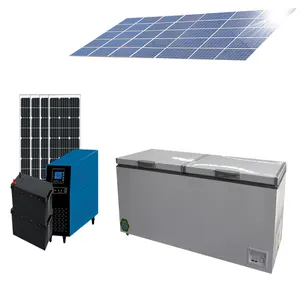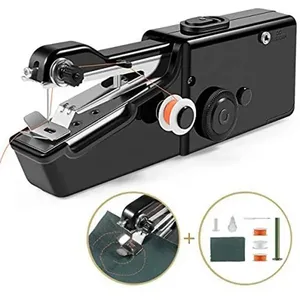Popular in your industry














 Ready to Ship
Ready to Ship


Related Searches:

 Ready to Ship
Ready to Ship



 Ready to Ship
Ready to Ship















 Ready to Ship
Ready to Ship





Top categories
About small quiet air conditioner
Introduction
In the quest for tranquility amidst the clamor of everyday life, the value of silence has never been more appreciated. As we seek solace in our homes, the noise from our appliances, particularly air conditioners, can be a significant disruption. This article explores the importance of silence and how small, quiet air conditioners can contribute to a peaceful environment. We delve into the science of air conditioner noise, key features of quiet air conditioners, their benefits, and the top models available in 2023. We also provide a guide on choosing the right quiet air conditioner for your needs.
The Importance of Silence: Beyond Comfort
In our increasingly noisy world, the importance of silence cannot be overstated. Each day, we're surrounded by a cacophony of sounds, from the blaring of alarms to the hum of machinery. Amidst this, a quiet environment becomes a sanctuary, allowing us to focus, enhance our senses, and reduce stress levels. This is where the value of a small quiet air conditioner comes in. It provides the comfort of cooling without the disruptive noise, allowing you to enjoy the power of silence in your own space.
Understanding Air Conditioner Noise: Decibels and More
Air conditioner decibel ratings can vary significantly. A very quiet AC may only produce a sound of 25 decibels, while a typical low-end air conditioner can create a noise level anywhere between 78 to 82 decibels. Although not very high, exposure to this sound level for extended periods can damage the ear. Therefore, it's crucial to minimize unwanted air conditioner sounds. An ideal air conditioner sound level should be anywhere between 40-60 decibels, similar to an average conversation. Some air conditioners even achieve a sound level as low as 19 decibels, equivalent to a whisper from five feet away.
Key Features of a Quiet Air Conditioner
A quiet air conditioner is not just about the cooling capacity, but also about the noise level it produces. Key features of a quiet air conditioner include its size, designed for the room size, and its cooling capacity, measured in British thermal units (Btu). An oversized air conditioner might run louder, disrupting your daily routine. The technology underpinning air conditioners has improved in reducing the noise they make. Inverter ACs are able to more finely control the speed of the compressor, which cools the air, making less noise. More inverter models, which are more efficient and quieter, have become available.
Benefits of a Quiet Air Conditioner
A quiet air conditioner is not just about comfort, it's about health and efficiency too. A noisy unit can disrupt sleep and cause headaches, while a quiet one offers peace of mind. Quiet air conditioners are also energy efficient, with most having an energy efficiency ratio certification between 8 and 12. They are typically made with high-quality parts, requiring less energy to cool your space. Features like automatic reminders, energy saving mode, and intelligent cooling add to their convenience. Lastly, a low-noise air conditioner can help maintain good relations with your neighbors by not disrupting their peace.
Top 5 Small Quiet Air Conditioners in 2023
In 2023, the top small quiet air conditioners include a variety of models from different manufacturers. These models are designed for different room sizes and have noise outputs ranging from 52 to 56 dB. Some models offer excellent cooling performance, while others are budget-friendly options. There are also models suitable for small rooms and those that can be easily controlled with a remote.
1. Model A: Features, Pros, and Cons
Model A is a standout model among small quiet air conditioners. Its unique U-shaped design allows you to continue using your window, while the inverter compressor uses about half as much energy as a non-inverter AC. This model is impressively quiet, blending into the background noise at between 35 and 40 decibels. However, the installation process can be frustrating. Model A also offers robust smart-home features, including compatibility with popular voice assistants, and an app that allows precise temperature control.
2. Model B: Features, Pros, and Cons
Model B is a powerful and efficient portable air conditioner. It's impressively quiet, running at an average volume of 48 decibels, making it an ideal choice for those seeking silence. Its inverter compressor and unique dual-hose design contribute to its high efficiency, with a CEER rating of 10.8. Additionally, it has a built-in heating mechanism, offering year-round climate control. However, it's on the expensive side, which might be a consideration for some buyers.
3. Model C: Features, Pros, and Cons
Model C is an attractive and easy-to-install air conditioner. It stands out with its rounded corners and subtle indicator lights. The pre-installed frame fits right into the window, and a stylish plastic cover protects you from sharp exhaust fins. It also features an inverter compressor, making it as efficient as our top pick and almost as quiet. You can even customize the front grille with a color panel of your choice. However, it's worth noting that the smart-home app can sometimes be glitchy.
4. Model D: Features, Pros, and Cons
Model D is a powerful, energy-efficient inverter AC, suitable for rooms up to 450 square feet. Its unique design allows it to hang down over the wall, freeing up window space. Despite its size, it only protrudes about 9 inches into the room. However, due to its weight, you might need assistance during installation. This model is not only efficient but also quieter, providing a comfortable and serene environment.
5. Model E: Features, Pros, and Cons
Model E is an energy-efficient inverter AC. It's large enough to cool a room up to 450 square feet, taking up only about 4 inches of window space. Its unique N-shaped design hangs down over the wall, freeing up window space. However, it does protrude into the room, and installation might require assistance. This model is bigger, quieter, and provides more window room, making it a great choice for those needing a powerful yet compact air conditioner.
How to Choose the Right Quiet Air Conditioner for Your Needs
Choosing the right quiet air conditioner involves understanding its decibel (dB) rating, which measures sound intensity. The lower the dB rating, the quieter the AC. Typically, a quiet AC falls within the 50-60 dB range. However, remember that the advertised sound (dB) is the AC running under perfect conditions. Factors like AC size and fan speed can affect sound levels. For instance, a larger AC in a hotter area may be louder than advertised. Therefore, it's crucial to get a professional AC installer to perform a Manual J Heat Load Calculation on your home to determine the right AC size.
Conclusion
In a world where noise pollution is a growing concern, investing in a small, quiet air conditioner can significantly enhance your comfort, health, and overall quality of life. Understanding the decibel ratings, key features, and benefits of quiet air conditioners is crucial in making an informed decision. The top models of 2023 offer excellent performance with minimal noise. However, it's essential to consider factors like room size, climate, and individual needs when choosing the right model. Embrace the power of silence and enjoy a serene, comfortable space with a quiet air conditioner.


























